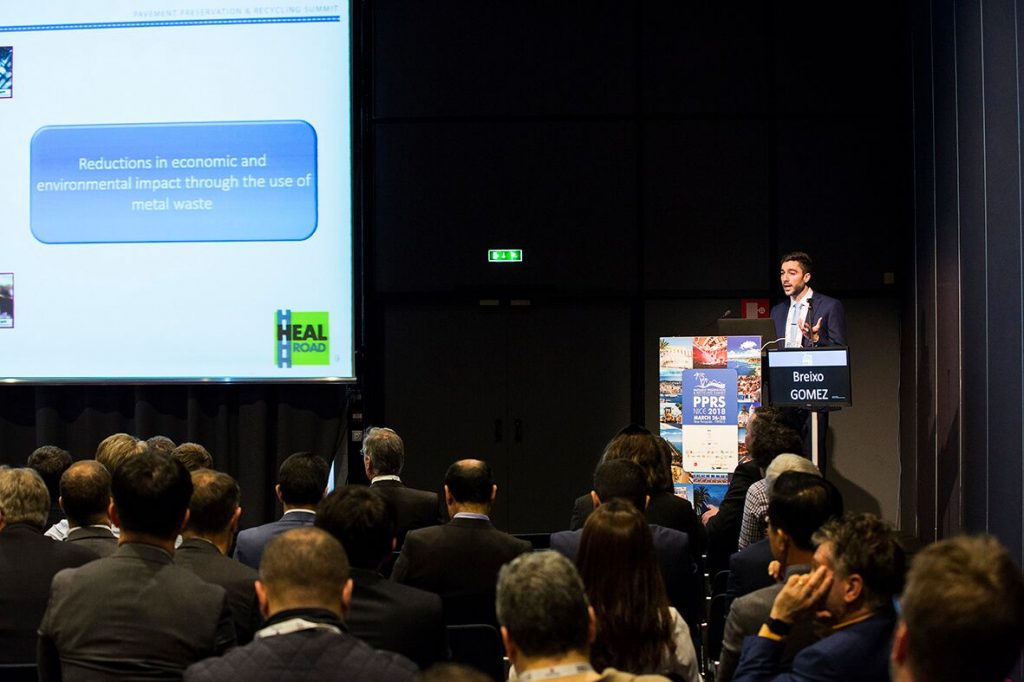
27 March 2018 | Nice, France
The final conference of HEALROAD was held on 27 March within the framework of the Pavement Preservation and Recycling Summit (PPRS2018) in Nice (France).
Partners of the consortium unveiled final results of the research which were in line with the objective of the PPRS: maintenance, modernisation, adaptation of roads & streets for tomorrow’s mobility.
HEALROAD had a dedicated session gathering more than 100 participants. Initial presentations from the consortium described the analysis of the asphalt healing technique at the laboratory and the industrial upscaling and demonstration at the duraBASt facility in Germany.
Partners focused on the last phase of the research which started in July 2017 with the construction of the HEALROAD section and continued until February 2018 with the monitoring of the self-healing technique performance. Concretely, the final phase of the project consisted on the deployment of the accelerated loading test (Mobile Load Simulator MLS30) that simulated a real traffic flow scenario able to create the first cracks. At that moment, the road was ready to initiate the HEALROAD induction heating process to self-heal initial cracks with the SGS machine brought from The Netherlands.
In parallel to the tests on the road, cost and environmental impact of the HEALROAD asphalt mixtures was also analysed and final results were unveiled to the public in Nice.
Regarding the economic performance, analysis concluded that despite a slight increase of initial costs in +2%, road managers could benefit of lower costs for renewal measures in between -27% to -21%. Additionally, costs caused by extra travel time, fuel consumption, C02 emissions and accidents in sum can be reduced between -11% / -24 %. In total, it is estimated a total saving of costs in around 4%.
The environmental analysis compared a HEALROAD section with a conventional one considering a 30-years analysis period and 6 different stages of the road life: production, road construction, leaching, maintenance, congestion and end-of-life. In total, the HEALROAD technology was proved to have a better performance against a conventional mixture in 14 of the 17 midpoint impacts and in all the endpoint impacts.













